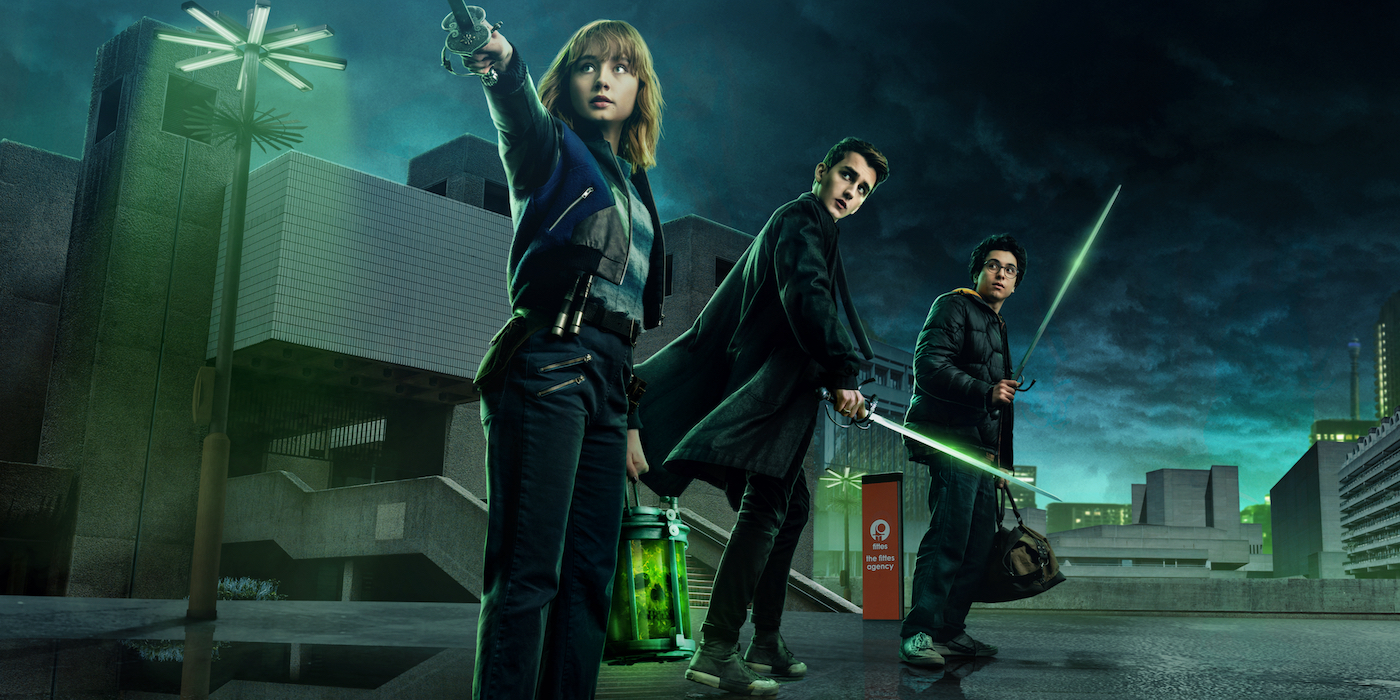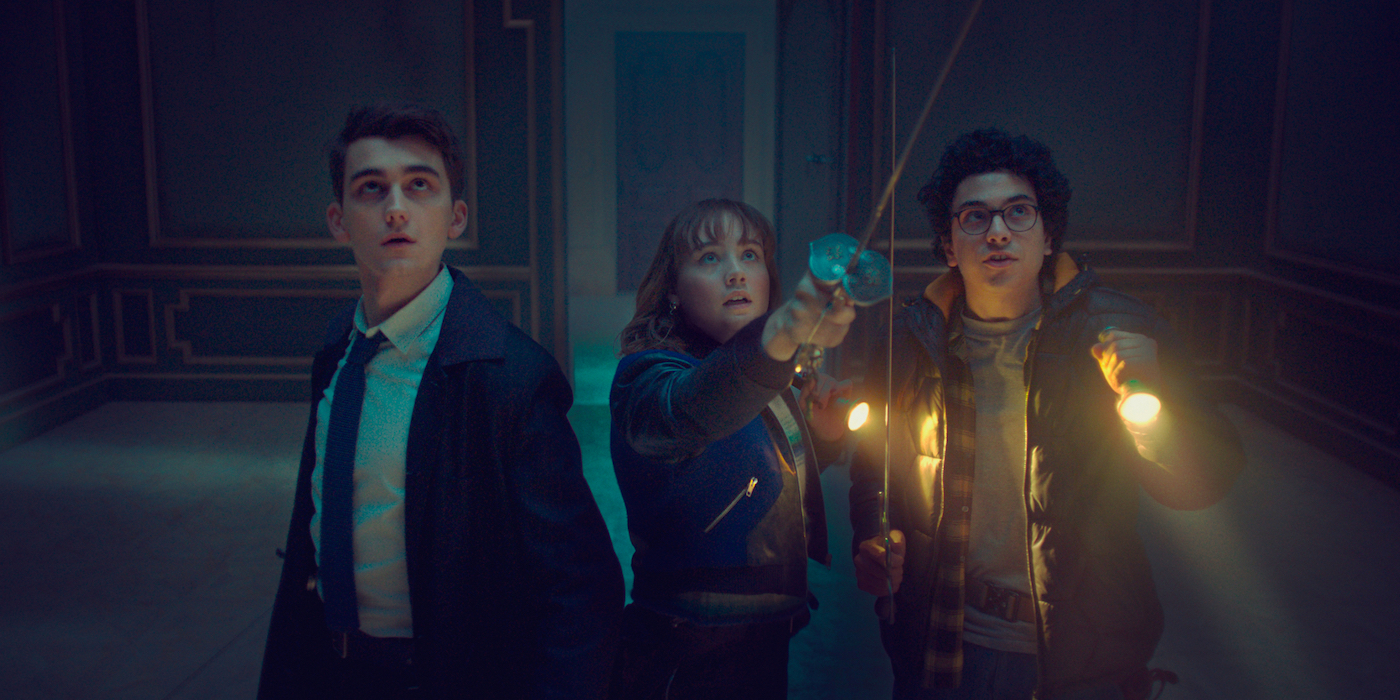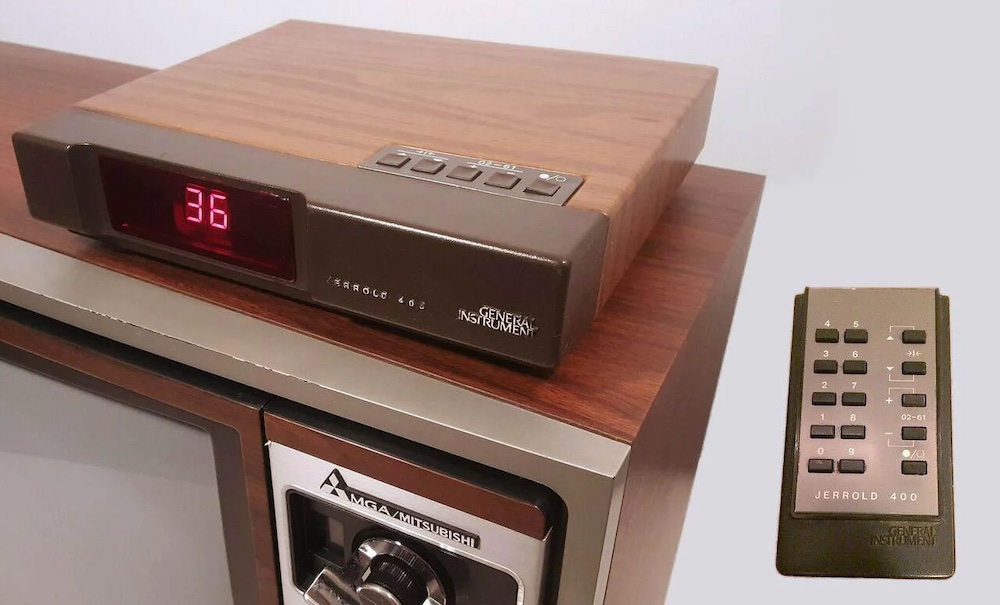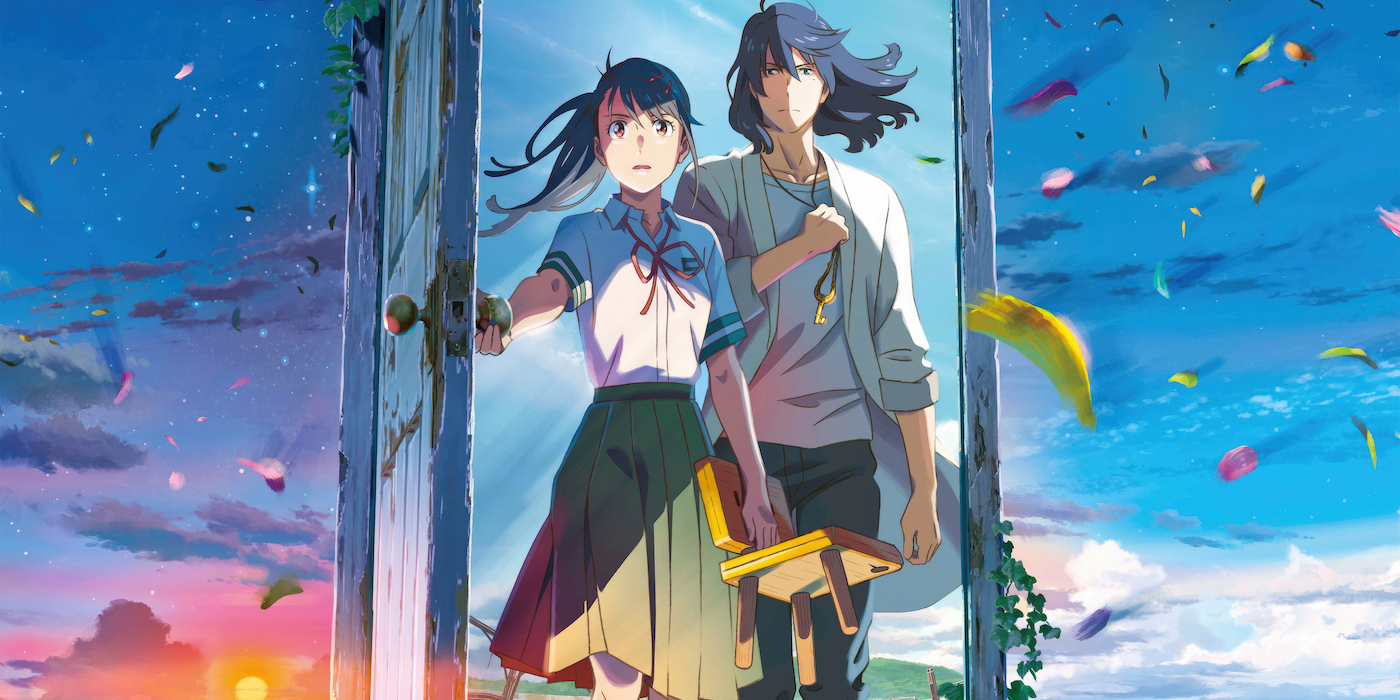Netflix’s ‘Lockwood & Co.’ Cancelled After Just One Season, Fans Outraged

Lockwood & Co. joins the graveyard of one-season Netflix shows along with 1899, I am Not Ok With This, Archive 81, The Get Down, and others.
Lockwood & Co. is based on the popular YA books by Jonathan Stroud. An epidemic of deadly ghosts has hit Britain, and only kids have the power to destroy them. The older you are, the less visible to ghosts become. A young psychic investigator, Lucy Carlyle, joins London’s smallest agency led by Anthony Lockwood to search out some of the spookiest and deadliest spectral hauntings in the city. They are armed only with their wits, the tools of the ghost-hunting trade, and a thermos of tea.
Despite poor promotion by Netflix, the first season quickly rose to the top ten on the service when it dropped in January. It also garnered high praise from critics and audiences. The streamer seemed to be very happy with the show’s performance at the time, but it didn’t hit the arbitrary viewership threshold. So, as is Netflix’s habit, it canceled the series without giving it a second season. Leaving fans in the cold. Again.
I still recommend watching the first season because its arc gets a solid ending – though its characters don’t. It’s a fun low fantasy show that had the potential to grow into something more, like so many other Netflix series that met an early end. You can always pick up the books if you want to keep exploring the universe.
Lockwood & Co Creator’s Response
Complete Fiction, the studio behind the show (founded by Edgar Wright and Joe Cornish), released a statement about the cancellation.
“With heavy hearts, we announce that Lockwood & Co. will not be returning for a second series. Making this show was one of the most rewarding experiences of our careers and we will forever treasure it.
“To the fans – to Lock Nation – you really have been the greatest. We cannot thank you enough for how much you have embraced, celebrated and loved the show. You are the kindest, most creative group of people online and it has been so gratifying to see how your passion for these characters and this world has brought you all together. This might be the end of the line for the TV show, but the books live on, as do the friendships made. We encourage you to embrace both.
Advertisement“So many people have watched and enjoyed the show globally, and that, at the end of the day, is why we do what we do. So keep watching great TV. Keep going to the movies. Keep taking chances on new things. Stay ‘just reckless enough.'”

via Netflix
Netflix’s Cancellation Habit
The streamer has created this loop for new shows due to how they develop new content. In their quest to have the newest content, they use a ‘throw things at the wall to see what sticks’ approach. Viewers don’t want to invest for fear a show will be canceled, but if a new show doesn’t get viewers it will get canceled. Many of these shows end with rushed/weird wraps or unresolved cliffhangers. Creators are having to balance closure and leaving an open ending for larger arcs.
Streaming has brought on an accelerated development process that’s all about more new content constantly. Sure, there’s always something new to watch, but that doesn’t mean it’s worth the churn. The method comes with costs – lowered quality, cancellations, and an overwhelming number of choices. Dropping a full season at a time doesn’t really help a show’s longevity, either. The deluge of new titles (there were over 500 new shows in 2021) makes me miss the limitations of network and cable a little bit.

This isn’t just an issue for audiences. The way writers are being treated by streamers is the driving force WGA strike. Seth Rogan – who is one of the executive producers of The Boys – spoke out about the situation to Variety.
“I’m personally distressed by not having any sense of how successful these shows and movies we make for streaming services are. The secretiveness only makes me think that they’re making way more money off of all of us than they want to share with anybody. These executives are making insane salaries that you would only make if you are running an incredibly profitable business.”
Streaming was supposed to be the answer to home entertainment. So far, it’s just screwed over everyone but the big company execs… and AI companies.





